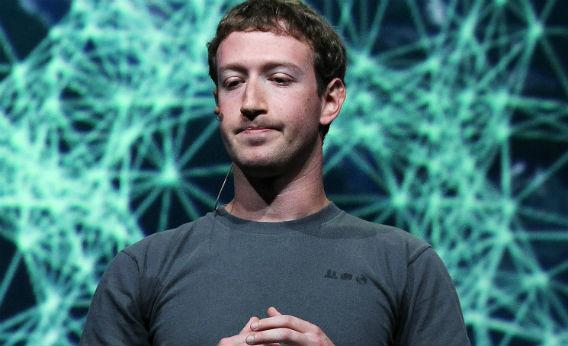When word came that Instagram had been acquired by Facebook for $1 billion, the tweets came fast, and they were furious: “Delete ur instagram!! The Feds own it now!!” “I had a higher opinion of you Instagram.” “Soon as I delete my Facebook they decide to buy instagram #FML.”
To an outsider, the outrage was puzzling. A small company that lets you share photos with friends and strangers was purchased by a larger company that lets you share photos with friends and strangers. For Facebook, targeting Instagram makes sense. Its mobile photo-sharing tool is ugly and clunky; Instagram’s is pretty and seamless. With the purchase, Facebook upgraded a weak spot in its business. This kind of deal happens all the time in Silicon Valley—think Yahoo buying Flickr in 2005, or Google buying YouTube a year later.
For many startups, in fact, getting acquired by a company like Google or Facebook is the ultimate marker of success. And Instagram’s loyal users shouldn’t fret too much about the plucky little company selling out. Sure, their pseudo-intimate community of 30 million will expand, and their data might be mined, and Facebook is stupid and for old people. But Facebook chief Mark Zuckerberg has promised to keep Instagram independent, meaning its users won’t have to share their photos on Facebook if they don’t want to. (Then again, Zuckerberg does have a habit of changing his mind.)
There’s one thing about this deal that doesn’t quite make sense at first blush, though: the price tag. Facebook paid $1 billion for a two-year-old San Francisco startup, a company that has 30 million users but zero revenue. True, Instagram had differentiated itself with a clever gimmick: With one click, you can choose among an array of color filters that turn your drab smartphone snapshot into something resembling a vintage Polaroid. That feature, and the fact that the Instagram app is free, doubled its popularity in just the past five months.
But Instagram’s market position isn’t unshakeable: It had only recently conquered a paid app called Hipstamatic as the leader in fuzzy-looking iPhone pics. It seems inevitable that the cool kids will eventually toss their color filters aside in favor of some new aesthetic gimmick. Surely Facebook, with its 3,000-plus employees worldwide, could have just built something similar to, if not better than, Instagram for a lot less money. So why did it pay $1 billion?
Because for Facebook, this isn’t just about improving its photo-sharing app. It’s about domination. Facebook doesn’t want to be one among a number of options for sharing your personal content with friends and strangers. It wants to be the only option. Just as Google rakes in revenue by ruling search, Facebook’s business model depends on monopolizing sharing on the Web. Not just sharing status updates, or likes, or memes, or even photos—but sharing, as an activity. To secure that kind of ubiquity, Facebook will wield its pocketbook to take startups like Instagram out of play. If it doesn’t, someone else might scoop them up.
When you think in those terms, the price starts to make sense. Instagram may not be worth $1 billion to anyone else—indeed, it was valued at half that price just last week—but it’s worth that and more to Facebook to head off a potential challenge to its core business. Let Google or Twitter or Pinterest buy Instagram, and suddenly they’re great alternatives for sharing photos. And if there’s one thing Mark Zuckerberg wants, it’s to make sure there are no great alternatives to Facebook.
For Facebook, the Instagram acquisition also makes sense as an attempt to gain access to its users’ phones. The social network got huge on PCs—its website is the most heavily used in the world—but it will stay huge by colonizing smartphones. More than privacy concerns, antitrust lawsuits, or Google+, a failure to dominate mobile sharing is the one thing that could stall Facebook’s seemingly boundless growth.
Perhaps this is the wellspring of the backlash to Facebook’s purchase of Instagram. Facebook is already much more than a website. It’s how you log in to Spotify, the music-sharing program; it’s how you post a comment on TechCrunch; it’s how you see what Slate articles your friends are reading. Instagram wasn’t just a company that was bought out by a larger competitor. It was a distinctive community that is now inside the belly of the Facebook beast.
Facebook was once a community, too. Now it is the all-seeing eye. When you log into Instagram, a message pops up welcoming you to “a fun and quirky way to share your life through photos.” When you download Spotify, by contrast, you get a lengthy privacy policy, plus a message that tells you, “Dylan B., John C., and 162 others use Spotify.” That’s 162 other Facebook friends, of course—and by default, they can all see what you’re listening to.
For Instagrammers and others, will there be any refuge from Facebook’s tentacles? The backlash to this week’s $1 billion purchase offers some reason to think the answer is yes. Of course, every change to a popular Web service provokes a backlash, and Facebook has weathered plenty in the past. But Instagram appealed to 30 million users despite not being a part of Facebook—and perhaps because it wasn’t part of Facebook. And if that’s true, then Facebook has a problem. Mark Zuckerberg can only buy so many $1 billion companies, and thanks to the app stores built by Google and Apple, the supply of tiny, potentially revolutionary startups is endless. If it keeps on spending like this, even Facebook will eventually run out of billions.
